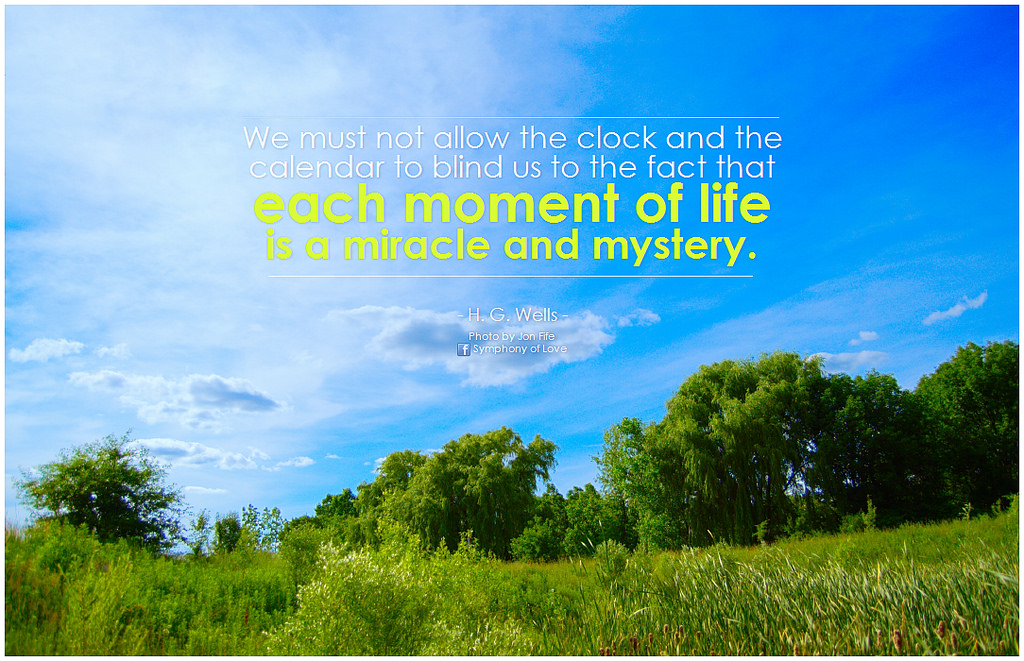“When did we decide that working 80 hours a week was acceptable? When did we decide that answering a work e-mail at midnight meant you were dedicated?”
This sentence was muttered nearly three years ago to me by a friend and colleague who also happens to serve in an Extension administrative role. It’s been three years, and I feel as though our epidemic of “busyness” has gotten worse in Extension. There is so much talk of “change” this year during our Centennial celebrations. States are planning for the future. But we’re focusing on the wrong things. Yes, future clientele needs are important. But what about the internal issues that haven’t been addressed?
An organization that is archaically-structured and governed currently will never effectively meet the needs of a future population.
One of these main internal issues we need to address is our obsession with and devotion to busyness. This 4-letter-word is something I’ve been paying a lot of attention to lately, because it’s personal. I am a wife and mother of two kids, ages 10 and 6. Both of which are involved in 4-H, Rec-league and YMCA sports (don’t even get me started on “Select Sports” – that’s an entirely different conversation). My husband is currently finishing up an additional college degree and is feverishly job searching. In a backwards way, this means that I am currently scheduling my work around his school schedule. My kids are old enough that I can actually enjoy my own hobbies now, which due to my tendency to getting bored easily, are always changing. My hobby of the moment = running. I happen to also like my friends and still want to spend time with them. And I have 3 separate appointments in Extension. Let me type that again – 3 Separate Appointments. Enough said. I have a lot going on, but I manage to juggle it all most days, thanks to the awesomeness of my Google Calendar. It’s the days when one of the balls falls to the ground that get to me. And almost always, that ball is labeled “work”, which is my choice, but I still feel incredibly guilty. Because I’ve been conditioned to feel that way.
When it Hit Me. The first time I realized Extension had a problem with busyness was the day I participated in a panel discussion six years ago during an Ohio State graduate class full of Agricultural Education students. They were seniors about to graduate. We were the new and seasoned Extension professionals and Ag teachers who could offer them some advice. One question posed to us by a student: “What advice do you have to juggle everything? How can I still have time to work and do the things I want to do?” We went down the row of “workers” and responded one-by-one. I only remember my advice and the advice a colleague of mine gave, whom I looked up to as an informal mentor at the time. My advice = keep a very, very detailed calendar. Carve out personal time. Friend time. Family time. At the beginning of every month. Then schedule everything else around that. I’ll admit this wasn’t perfect advice, but I was only a couple months into my career in Extension at this point. Then my mentor stood up – purposefully, as if to say: “You better listen to this!” – and nearly chided the student for asking such a question:
“Let me ask you this – how successful do you want to be? If you want to get ahead, you better be willing to give up your personal life. Work needs to become more important than your friends.”
Her words left a bitter taste in my mouth that day and have stayed with me ever since. In a way, this bitterness made me much more mindful about the choices I make while juggling all those balls in the air. It’s part of a technique Arianna Huffington refers to as the “third metric” in “Thrive: the third metric to redefining success and creating a life of well-being, wisdom, and wonder”. Guy Kawasaki does a wonderful job summarizing Huffington’s book in his “Let’s Stop the Glorification of Busy” post.
Other examples of busyness I’ve witnessed in Extension:
– people who have left the organization because they want their “personal time” back
– colleagues who don’t walk the talk when they encourage others to say “no” to new commitments
– being told that you have no choice but to accept an invitation to “participate” on yet another committee assignment, or having someone ask you – “how can you say ‘no’ to that opportunity?”
– feeling as though you have to be at every “important” event or meeting for people to think you take your work seriously
– traditionally-minded co-workers who think anyone who works outside of office hours is overworking themselves – thus they overwork themselves to keep up with (or stay ahead) of you
– having to schedule a meeting 4 months out with colleagues in order to “find time” to meet
And I think the ultimate example of knowing that we’re too obsessed with “busy”: feeling guilty if you tell someone that you have nothing on your calendar more than one day during a five day span. After I had this feeling more than once, I knew we had a problem.
If we’re going to begin planning to meet the needs of the population in 100 years – we had better come up with some solutions to fix our internal issues beforehand. Here are some thoughts:

What if leaders posted pics of their family outings? Would you be more inclined to spend more time with your family?
How we can fix our obsession with “busyness”:
- New Leadership Philosophies This one can be simple. Less is more. Leaders shouldn’t only reward those who are busiest. Provide incentives for those whochoose to excel in hobbies outside of Extension – or who take all of their vacation time every year *gasp*. Leaders should not project an image of working 24/7 – they should project an image of what they want to see reflected in the organization. We need more leaders with personal blogs who talk about how they make free time a priority; who also Tweet about their training for marathons, ask everyone in the organization what book they should read next for pleasure, and post images of their kids taking a hike with them at the local nature preserve.
- Get More Involved Because we still operate as a hierarchy within Extension, even though our leaders may project an anti-busy philosophy, issues could (and would) still exist at the regional or county levels. I can’t tell you how many times I have heard one thing from the Director of Extension, and then another from several “county directors” who have other plans. In my opinion, this is one of the biggest inhibitors we have to progress in Extension. Until our organizational structure changes, leaders will need to get more involved. They will need to take the initiative to work past those in management positions and work with staff directly to ensure this new philosophy is communicated, promoted, and supported.
- Promote Mindfulness We have been preaching “wellness” here at Ohio State for a while and yet a disconnect still exists between what is being said and what employees are actually doing. We are still using “I’m too busy for ______.” as an excuse. Having participated in a Mindfulness course, I can attest to how practicing simple moments of mindfulness changes how you choose to spend your time. Much simpler than meditation, Mindfulness is an easy way to choose to just be present in each moment. To actually pull yourself away from a situation and look at what is happening around you. We need much more of this in Extension. If leaders promoted this practice, it may change our adoration of “busy”, because people could begin to see with eyes wide open how it’s negatively effecting our work culture, as well as our lives. You can read more on Mindfulness here and watch Dr. Maryanna Klatt’s (Ohio State) TEDxColumbus talk about her Mindfulness research here.
What other opinions do you have about our obsession with “busyness”? How can we fix it?



Jamie,
Thanks for the wonderful and thoughtful post. Busyness is a pet peeve of mine – I was once told by a specialist that something was very important to them, but they were too busy to deal with it. I, probably inappropriately, pointed out that if they were too busy for it, then it clearly wasn’t important to them. We each have our own priorities and need to acknowledge that some things just aren’t important enough for us to do.
A common complaint I’ve heard is that staff are only ever asked to do more. When they respond by asking what they should stop doing to make adequate time for the new stuff, there is no answer.
Early in my career, I was an ag agent. After my first son was born, I realized that there were too many days that I left before he woke up and got home after he was asleep. This was when I transitioned to IT, as my family is a higher priority for me than was my enjoyment of being an ag agent. I’ve never regretted that decision, other than a few nice days when I’m at the computer instead of out on a farm visit.
I never thought that Extension was an 8 to 5 job. If you accept a position within this field you should know that straight away. And that will be my only suggestion for “fixing” busyness.
Whatever path you follow in life to bring home a paycheck, I hope that it isn’t a “job.” It should be a passion, it should be something you are committed to, it should be something that you can get up in the morning (or late at night) and start in with anticipation not dread, and finally, it should be fun.
Disclaimer: I grew up on a small, 40-head dairy farm, started milking at the age of 8 (when my uncle passed away from cancer and my dad needed me). Except for 2 years I was away at college, I milked cows and farmed almost every day for the next 19 years old. I then spent 25 years at Penn State. I would get to work at 5 am and stay until 5:30 pm most days. I’m now “retired” and working a 3rd career at UVA Health. Here I wear a pager for one week at a time (rotate with 2 other people) to be available 24-7. IN between all of these “work” related events I have volunteers countless hours for my community. If we were to “fix” this issue, we would be surprised how many worthwhile activities would disappear.
Thanks for your comment Vince! I agreethat Extension is not a 9-5 ‘job’. For most of us, this career is indeed our passion. I truly love what I do and so when I answer emails at 10pm after my kids are in bed, or when I write a blog post when I’m supposed to be on vacation, that could be misconstrued as being incredibly busy and then expecting the same of others.But what people are missing when they make this assumption is that I also make time in my life to experience life in other ways outside of work. Spending time with my family,taking a vacation, joining a yoga class … All shouldn’t mean that I’m any less dedicated to my job or to Extension. We’re doing ourselves a disservice if we expect future employees to not take time for themselves. Even if that time is at 10 in the morning on a workday. ‘Office hours’ are a thing of the past, but living a truly full life (or feeling guilty for doing so) shouldn’t be.
Bravo for tackling this post. I love your point about new leadership philosophies…pictures speak louder than words, and to see and hear how people, specifically leaders, value creating space for the things that ‘research says’ is important for our health and development (family relationships, mindfulness, and healthy eating) seems like a pivotal step in changing the way we see ourselves creating value with our time. This would be quite a gift, especially for new employees seeking to find a way to integrate (I chose not to say balance) their personal/professional lives.
Yes Karen! There’s no such thing as work/life balance. There never was, and there never will be. I think it’s more about feeling encouraged to enjoy all facets of our lives… not just work. And I do think “integration” is a better word than “balance.”
Well said Jamie! (BTW, what was more important than our SEO session today? :))
I think one place we could start in fixing our system is to flatten the organization like nobodies business. We invest far too much of our resources “codifying” archaic practices. Of course, this will require massive cultural changes, but we need to get about that work as well.